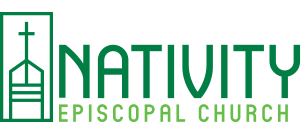Self-sufficiency, hard work, care and provision for the family, family relations, unity, humor, honesty, fairness, love for children, sharing, caring, village cooperation, responsibility to village, respect for Elders and others, respect for knowledge, wisdom from experiences, respect for the land, respect for nature, practice of traditions, honor ancestors, spirituality: courtesy of the Denakkanaaga Elders – these are the Athabascan values.
I have been blessed over the last week to take a deep dive into the context and culture of the Indigenous people of Alaska, along with other Bishops in the Episcopal Church. Our theme for this gathering has been, “Culture, Creation and Reconciliation: Bishops in the Jesus Movement.”
We spent the first two days doing deep listening to the long-time inhabitants of the amazing land that we call Alaska. Chiefs, elders and advocates shared with us both their history and tradition, but also the very important present day threats to their very survival. There is, without a shadow of a doubt, a deep connection between culture, creation and environmental justice for the Indigenous people of Alaska.
There is also, without a shadow of a doubt, a deep connection between the Indigenous people of Alaska that we were blessed to spend time with and the Episcopal Church. Generational roots are part of the story in both their own culture and the Episcopal Church. Hearing this, I invite you to read again the opening paragraph on the Athabascan Values. Do you see an inherent connection between these values and those we affirm in our Baptismal Covenant? Care for each other, including the stranger. Respect for all of God’s creation. Tradition, wisdom and knowledge matters.
As you may now be aware, our 2017-18 programmatic theme is, “Engaging God’s Mission of the Beloved Community.” My time with the Indigenous people of Alaska has blessed me beyond measure in seeing first hand what this looks like.
You can find your own way on this journey towards the Beloved Community here.
![]()
Source: Bishop Brian Prior – Culture, Creation & Reconciliation
